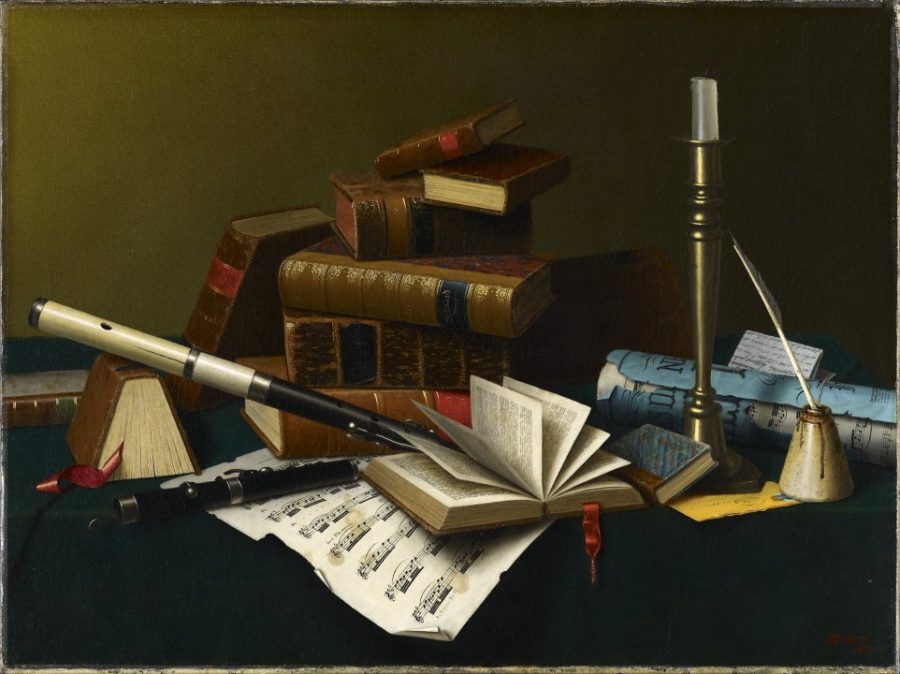Our Society Bases Worth Off of Profit — Its Time to Choose Our Passions
June 9, 2022
When a child with a wide grin and bright eyes says that they want to be a ballerina, a rockstar, a painter, most parents smile back. However, with the passage of time comes the slow decay of these smiles. A young adult who is ready to burst forth from high school to the rest of their lives will often earn a frown, a furrowing of eyebrows, if they say they want to be an artist, a writer, or a teacher.
In the end, it narrows down to the competition between the core subjects: humanities vs. STEM (Science, Technology, Engineering, Math), in which humanities earn less money and less respect. When it comes to choosing a career between the two, there is a right choice. In a society that measures success through a monetary lens, the right choice is STEM, leaving humanity careers in the dust, to be forgotten and mocked in a manner that it does not deserve.
This competition between the two fields is not just evident in income from careers, but it is ingrained so deeply into society that we do not notice the bias in favor of STEM. It takes a deeper look and consideration to see what is hidden behind casual remarks, which is why I took almost an entire school year to reconsider a friendly competition between my classmates.
At Hueneme High School, there are two higher-level math courses that are provided to seniors: AP Statistics and AP Calculus. My group of friends was split between the two classes, both taking place during the same class period. This began an amicable bickering among us, in which we argued in favor of our math class. I chose to take AP Statistics. It didn’t take long for my classmates and me to notice that it was the AP Calculus students who were more aggressive in arguing for their subject, giving the impression that they truly believed that Calculus is the superior in intensity.
The fact is, Statistics and Calculus are two entirely different subjects that require entirely different skills. In trying to explain this to my friend in Calculus, I remembered how we were advised to choose our math class based on the field we intended to major in. Unsurprisingly, Statistics is often more valuable in humanity fields, while Calculus takes root in STEM.
With this realization, I was transported back into my ninth-grade memories, recalling how my biology teacher told her class of 30+ students that she had more respect for people who earned a Bachelor of Science rather than a Bachelor of Art. I remembered the words of my counselor, who was helping me choose classes, when I told him that I was debating between majoring in Biology or English. He said that I should think about who makes more money, scientists or English teachers? I had always known that STEM was more respected — how could I not when time and time again, the adults around me have spread this bias almost unknowingly?
To be able to give humanity careers the respect they deserve, we must address the root of the problem: in our capitalistic society, everything stems back to how much profit is made, how much someone is worth based on their wealth. Success is viewed through financial value. A large house, a new model car, an income that is substantial enough to support a nuclear family with 2 children — this is success.
A career in humanities is viewed as wasted potential because it will not make you the same amount of money that a career in STEM is likely to. Since the field of humanities cannot get you to this success at the same rate, it is not deemed worthy of the same respect.
Additionally, careers in humanities are not funded at the level at which STEM is, which ties into the disparity between upper and lower economic classes. In the past, it would have been wealthy individuals who would have access to the tutoring and materials necessary to get into schools with subjects such as engineering and medicine. Someone without this wealth would have had to find a career at the local level, such as teaching or social work. Over time, society would have come to value careers that are more accessible to the rich upper class.
It should also serve to note that humanity careers are predominantly filled with women who, at the individual level, are paid less than men and who as a whole, are valued and respected less than their counterpart.
This isn’t to say that STEM should not be valued or that these fields are not necessary. We would be in an unfortunate world without the advances that science, medicine, and technology have brought us. However, as revered as STEM is for changing the world, it should be remembered that humanity can be life-changing too.
Mention the name William Shakespeare or show someone an image of the Mona Lisa and there is likely to be at least a semblance of recognition. This is art that has changed the world and continues to do so. The scientists in labs finding cures and the surgeons in operation rooms would not have gotten there without elementary school and high school teachers to get them started. In fact, one teacher or one social worker has the ability to change the life of someone, and this is changing the world, by helping one person at a time.
After a pandemic, in which we turned to art and music as much as we did to our doctors, we should remember that success cannot be measured. We should encourage ourselves and the generations to come to follow our passions and remind each other that every individual deserves the same respect, regardless of their job.
We should take with us this quote from Dead Poets Society, a film in which a young man meets an unfortunate fate after being forced to quit his dream in theater to follow his parents’ wishes of being a doctor: “Medicine, law, business, engineering, these are noble pursuits and necessary to sustain life. But poetry, beauty, romance, love, these are what we stay alive for.”


